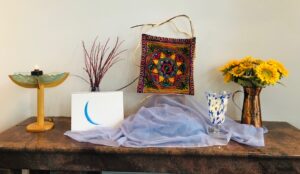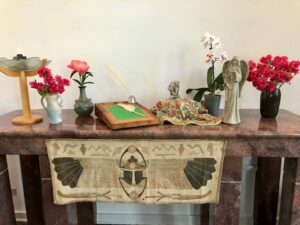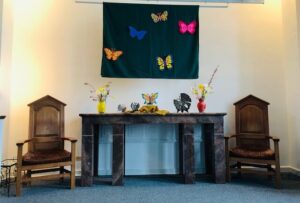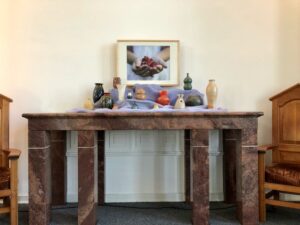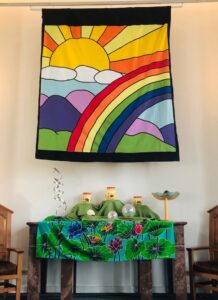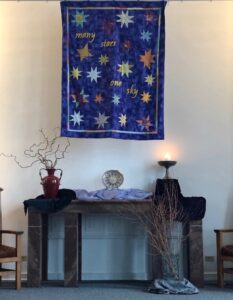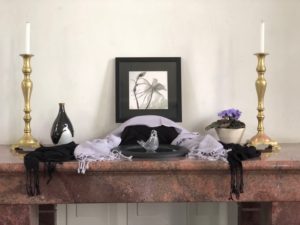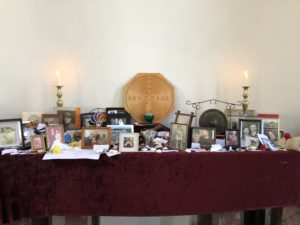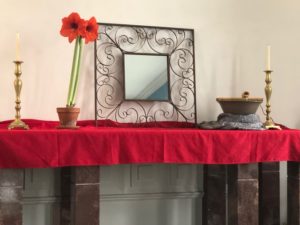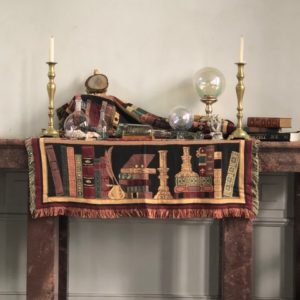You know that feeling of having integrity? That’s what we as people, a congregation, and a country can do: when we set up systems to match our resources to our values. Rev. Alex McGee preaches on lessons from 2020 General Assembly about systemic change and financial commitment to inclusion.
STORY
I’d like to begin this morning with a story (read the full story). Jeffrey Campbell was born in 1910 in Boston. His mother was European-American, and his father was African-American. The family experienced racial violence, and moved to Nashua, Vermont. There, they continued to experience racial violence, which led to the death of Jeffrey’s father when he was 12.
They belonged to the Universalist church in Nashua. A note here…the Unitarian and Universalist groups had not yet merged at that time. In that Universalist church, most other members had lighter skin than he and his sister, but they found the church and its message meaningful. So meaningful, in fact, that he went to a Universalist seminary to prepare to serve in ministry. Apparently, leaders of the seminary were concerned…”who would ever hire him?” Indeed, although he received high regard and glowing recommendations, no one offered him a job serving a church. Nonetheless, he became active in pacifist work during World War I and taught English at the very progressive Putney School in Vermont. Late in life, he did serve a half-time position at a church, and an unpaid, on-call position at another, and was asked to be a speaker at a national UU conference in 1969.
His sister, Marguerite, married a white Universalist minister, and Campbell officiated. The editor of the denomination’s magazine, wrote a critical public letter, saying that mixed race marriages are hard on children and that ministers should not officiate at them. To understand that, imagine today, having your wedding publicly debated in the UU World magazine. Nonetheless, Marguerite Campbell worked as staff at the denomination for many decades.
Considering all this service by this brother and sister, the members of the UU church in Nashua were very surprised three years ago to discover that they were buried in unmarked graves in town. So, in 2017, a small group in the Nashua congregation undertook study, then fundraising, then action to place a gravestone, and to name their chapel after Campbell. They are committed to ongoing understanding of racial history in their town and their role in the future of equity.
STEPS
Now, my friends, as you hear that story, how does that make you feel?
In your body, did you have any physical reaction?
What stood out the most to you?
It is a story, like so much of history, of a thread woven across time— a thread in a web, such that people’s actions affect each other. History can be examined just as so-called facts, or it can be examined through a moral lens.
Did you hear that the current-day congregation did not just learn a painful past and stop there? They did not just hope for a better future, but took action and put money toward it.
“Decolonizing Wealth introduces Seven Steps to Healing, which include (1) grieve, (2) apologize, (3) listen, (4) relate, (5) represent, (6) invest, and (7) repair. These steps are a means to both heal, and translate this healing into action. We as humans have given money its value of exchange, so we also have the power to change how we utilize it.
In Indigenous cultures, we understand medicine as anything that can restore balance. Indigenous communities do not wait until sickness presents itself to try to restore balance––rather, we are proactive in maintaining this balance. What if we were to use that same mentality to alleviate the imbalances and inequities of wealth in our country? How can each of us use our money as medicine in this process?”
—Edgar Villanueva
Source and further reading: Free Workbook with reflection questions on Decolonizing Wealth. He also published a book: Decolonizing Wealth.
I think this pertains to a question in front of us.
Some people in this congregation are hoping that we will change the name of the congregation. Consider again to the seven steps, and I am asking Sean to put up the slide again.
Is it possible that changing the name is only one part of a whole series of steps?
What stage is our congregation in?
What stage are you in?
We are looking at a flat image, but life happens in 3-D flesh, time and space. That image on the screen of winding through the seven steps happens in real life sometimes winding back and forth between steps, with jumps and starts, re-plays and look-backs, and try-overs. That’s okay. I encourage you to be alive to all of these possibilities, and particularly notice if you are resisting one of them.
Now, I’ve shown you a lot, and I invite you to take a break and let your eyes close and rest for a moment and breathe. If you like, you can keep on resting your eyes as I speak, and I’ll let you know when I have another visual to show you.Knowing how to make repair isn’t always obvious to everyone. Sometimes we need help.
We need not just hope, but action, but all hope with no action becomes an insult to those who are suffering.
We need action not only from one person to help another person, but we also need change of how our very institutions work.
Now, institutional change is not easy. This very country is built on systems of dominance. To shift the bedrock will feel like quakes and tremors below our feet. Are we up for that? To some, those quakes and tremors are signs of new possibility opening up. To others, the quakes and tremors are signs to cling to what is known.
Throughout society change is needed, but let me offer one example where I have seen very useful conversation recently.
Commission On Institutional Change report, Widening The Circle of Concern
WHY THIS MATTERS
Why does this matter?
Because every human needs love.
Institutions are made up of humans, so institutional change in the directon of love means individual change in the direction of love.
All of us, in so many situations, need love.
Whether you are afraid of being beaten for marching in the streets,
Whether you are nervous about asking for a new policy,
Whether you are bereft that your church let you down,
Every human needs love, and the courage for action.
Whether you are having trouble getting up in the morning because of depression.
Whether you are having trouble getting through your day because of a boss who discriminates,
Whether you are having trouble getting sleep at night because the babies are crying,
You need love and courage.
Don’t you?
Whether you are feeling lonely and missing school mates during the pandemic,
Whether you are feeling scared that your spouse will ask for a divorce,
Or whether you are afraid to burden your children as you develop Alzheimers,
You need love, don’t you?
Well, this UU religious tradition promises love to all. Now, the Love comes from many sources, some human, and some beyond the human realm. But, we strive to embody it in our institutions.
The UU tradition has a very attractive theology, and many people are excited to find the UU good news:
Lots of people have found the UU message on line,
seen UU slogans at rallies,
and picked up UU brochures when they were in the building for a rental.
But, many of those people, when they arrive as a newcomer and try to get involved, discover that UU institutions aren’t living up to the message of love and courage.
Many people do stay, despite feeling let down, because they believe in the promise of love and change.
Please share for the benefit of others, and attribute sources out of respect for authors.

